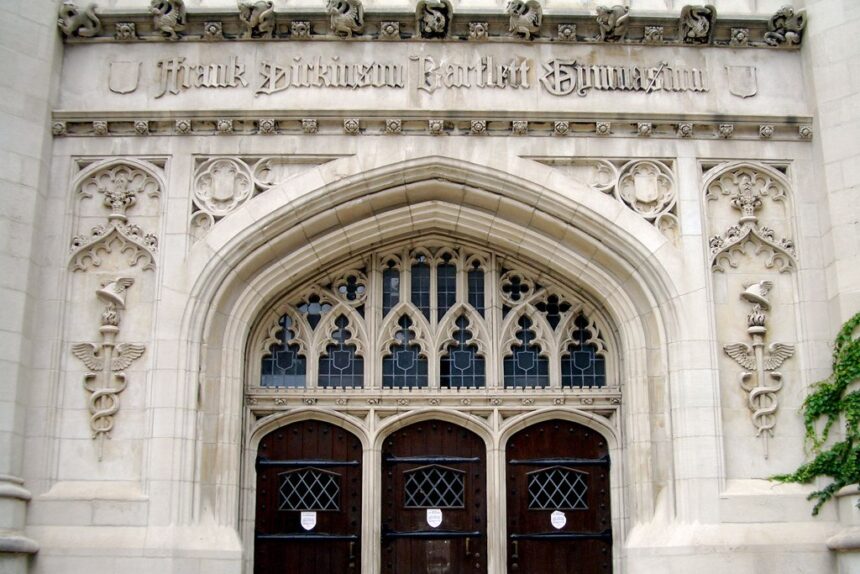A few weeks ago, something unusual happened at the University of Chicago, where I am a student. Vineet Arora, the dean for medical education, received a powerful letter from the Foundation Against Intolerance & Racism (FAIR), a civil rights nonprofit, expressing concerns about a program proposed by her administration that would have paid a $2,000 monthly stipend and provided exclusive networking and mentoring opportunities to certain medical students.
The catch? “Successful applicants,” the program overview states, “will advance our diversity and inclusion mission.” In other words, white students were to be excluded. But that, as FAIR noted, would violate Title VI of the Civil Rights Act, which prohibits any institution that receives federal funds from discriminating based on race. Dean Arora, in turn, quietly indicated to FAIR in a curt email that she and her fellow administrators would be “updating their materials in order to ensure compliance with the law.”
It was a rare moment—the successful routing of anti-white discrimination by threatening a dean with legal action at one of the nation’s wealthiest universities. Such victories are uncommon in this day and age, to be sure. And though it was too meager to call an apology, Dean Arora’s implied confession of wrongdoing was a big bonus.
Yet despite all that, there were no calls from any white students to get her fired. There were no protests, boycotts, or public outrages by any students of any color. To my knowledge, our College Republicans organization has been silent on the matter, as has every other self-described conservative student group. Regarding white people as second-class citizens has become so normalized that no one even cares when something is done to stop it from happening.
By contrast, much fanfare surrounded the attempted lynching of economics professor Harald Uhlig, at the University of Chicago, after he criticized Black Lives Matter as riots erupted across the country. Economist and New York Times columnist Paul Krugman joined other high-profile academics in suggesting Uhlig lose his editorship of the Journal of Political Economy. Amid the furor, a student claimed Uhlig had “made fun of Dr. King and people honoring him” during a class session, triggering an investigation by the administration. Uhlig said he didn’t recall the incident, as if that mattered.
Unlike Arora, Uhlig had not proposed racially discriminating against anyone. But it was Uhlig, not Arora, who was forced to publicly clear his name and suffered harm to his reputation.
Of course, none of this is new. Discrimination against white students is happening at virtually every American institution of higher learning, from Harvard to your local community college, under the euphemism of “diversity and inclusion.” As a white student from Tennessee on a full-ride scholarship, I experienced the fruits of “diversity and inclusion” in just my first month at college, when because of my race, I was banned from participating in a debate tournament.
The current system considers people like me infinitely more privileged than my non-white peers, many of whom went to ritzy New England boarding schools that cost more than some colleges. White students are essentially asked to accept their place at the bottom of the racial hierarchy.
Anti-white discrimination is so common and takes so many forms on campuses that it’s become an almost trite topic to discuss. Occasionally, there are truly shocking moments, like when Aruna Khilanani, a psychiatrist from New York, fantasized about “unloading a revolver into the head of any white person that got in my way” during a lecture to students at Yale’s Child Study Center.
Yet there is no end in sight, in part, because many students are afraid of being called racist—ironically—for protesting racism aimed at white people. The word “racist” possesses so much power that it causes white students to keep silent, at almost any cost, to avoid the label—never mind that their left-wing peers will despise them anyway for being anywhere to the right of Bernie Sanders.
Black Lives Matter activists on and off campus insist “silence is violence.” For the students at the University of Chicago who will not stand up to flagrantly discriminatory policies designed to exclude or deprive white people, silence is surrender. If white students care about being treated with the same dignity as everyone else and about being afforded the same opportunities, then they must be willing to demonstrate the same kind of dedicated resistance that others have shown.
Image: Bartlett Hall at the University of Chicago (from: Justin Wong via Wikimedia Commons, CC BY 2.0)

Leave a Reply